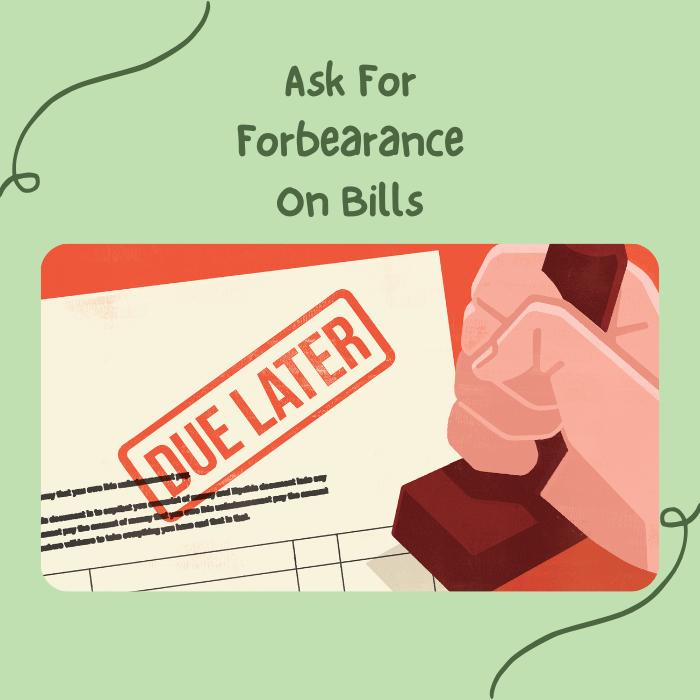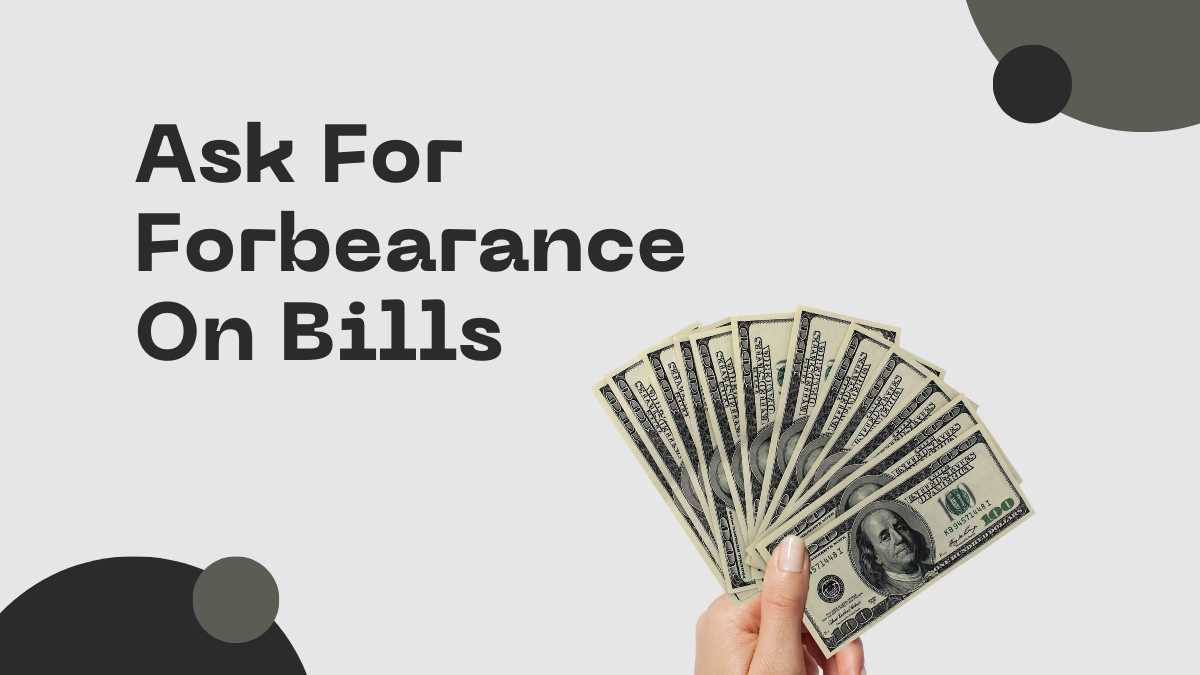Ask For Forbearance On Bills
Are you feeling overwhelmed by your mounting bills? With the current economic uncertainty, many of us are facing unprecedented financial challenges. But fret not! In times like these, it’s crucial to be proactive and seek solutions. That’s why in today’s blog post, we’ll explore the power of asking for forbearance on bills – a game-changing strategy that can provide much-needed relief during tough times.
Whether you’re struggling with mortgage payments, credit card bills, or other financial obligations, stay tuned as we guide you through this practical and empowering approach to regaining control over your finances. Get ready to learn how simply asking for forbearance can make a world of difference and pave the way toward financial stability.
Table of Contents
What is Forbearance?
Forbearance is a term that is used in the legal world to describe a situation in which a party decides not to enforce a legal right or obligation. The term can be used when there is an agreement between the two parties involved, or it can be unilateral on the part of one party.
When something is forbearing, it means that it’s willing to postpone or put off dealing with a problem until later. It allows both parties to try and work out a solution without having to go through the process of enforcing their rights. This can be helpful in cases where there are potential consequences for going through with either side’s demands.
It’s important to keep in mind that forbearance isn’t always easy or possible to come by. If one party feels like they’re being forced into forbearance, they may not be willing to negotiate in good faith. Instead, they may resort to threats or other tactics designed to force the other party into compliance.

How Does Forbearance Work?
Forbearance works by the creditor agree to delay the collection of an outstanding debt, usually for a set period of time. This can be useful if the debtor is struggling to meet their financial obligations and would like more time to resolve the issue.
The terms and conditions of forbearance are usually set out in a written agreement between the creditor and the debtor.
There are a few things to keep in mind when applying for forbearance:
- The creditor must believe that the debtor will be able to repay the debt in full within the allotted time frame.
- The debtor must be able to meet their financial obligations while on forbearance, including regular payments on any outstanding debt.
- If the debtor fails to meet their financial obligations during forbearance, their credit rating may be affected negatively.
Who Can Request Forbearance on Bills?
If you are having difficulty meeting your financial obligations, you may be eligible for a forbearance on your bills. A forbearance is a form of temporary relief from debt that allows you to temporarily stop making payments on your bills so that you can catch up on what you owe.
There are several factors that will determine whether or not you are eligible for a forbearance on your bills. The most important thing to remember is to speak with an authorized representative from the creditor or loan company in order to find out if you are eligible and what restrictions may apply.
Some things to keep in mind when requesting a forbearance include:
- Be honest about why you need the forbearance and what steps you plan to take to repay the debt over time.
- Make sure you have all of the relevant documents ready, such as income verification, proof of residency, and recent bank statements.
- Keep in mind that any outstanding debt will continue to accrue interest while the debtor is under forbearance.
- Bear in mind that if creditors decide not to grant the requested forbearance, they may report this information to credit agencies, which could lead to increased borrowing costs in the future.
Why Would I Request Forbearance?
If you are behind on your bills and need some time to catch up, you may be able to request forbearance. Forbearance is a temporary delay in payments that can allow you to get back on track. There are a few things you need to know before requesting forbearance:
- You must have good credit and be able to afford the payments going forward.
- Your lender may require that you maintain a minimum debt-to-income ratio as well as meet other financial requirements.
- Forbearance should only be requested for short periods of time, typically six months or less.
What Are the Benefits of Requesting Forbearance on Bills?
If you are struggling to pay your bills, requesting forbearance may be a viable option. Requesting forbearance can have a number of benefits, including:
- Reducing stress and anxiety over debt payments.
- Helping reduce late fees and penalties.
- Easing the burden of debt during difficult times.
- Giving you time to come up with a solution to your financial situation.
- Requesting forbearance can be a positive step in managing your debt.
What Are the Disadvantages of Requesting Forbearance on Bills?
There are several potential disadvantages of requesting forbearance on bills.
The first and most obvious disadvantage is that if the bill is not paid when it is due, interest will be added and the balance of the bill may become due much sooner.
Additionally, if the bill is not paid on time, credit ratings could be impacted and it may be more difficult to borrow money in the future. If a bill is not paid on time, it can result in penalties such as late fees and even legal action.
Conclusion
If you have fallen behind on your bills, now is the time to ask for forbearance. This will allow you to catch up on your payments and avoid any penalties or interest charges that may be associated with late payments.
Simply explain your situation to the creditor and offer to start making regular payments as soon as possible. It might not be easy, but it is worth it to get back on track and keep your credit score in good standing.






